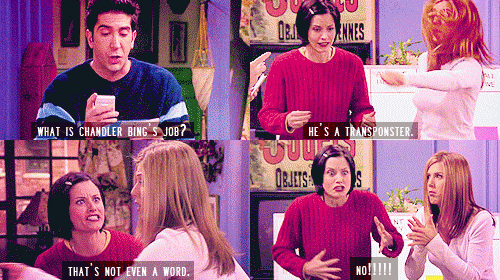Searching for a job is hard. Searching for the right job can seem impossible. From figuring out where to apply to waiting for the hiring manager to email you back, the job application process can be overwhelming. Having just gone through it myself, I know firsthand how difficult it can be to get your foot in the door and finally land the PR job of your dreams. Throughout my application and interview process, people were eager to give me advice and tips on how to land a job. Here are the five tips that I found the most useful in securing my first job out of school.
1. There are over 22,000 public relations firms in the United States. Don’t apply to all of them.

Whether it is the city you want to be in, the type of clients you want to represent, or the size of the organization you want to work for, having some criteria will help you narrow your search and find the PR agency that is right for you. If you are passionate about tech, look for agencies that specialize in tech public relations (ahem, BIGfish). Your passion and knowledge of a certain niche market will shine through on the application and during the interview; hiring managers will take notice! Most importantly, don’t pretend to be passionate about something you aren’t; the hiring manager will be able to tell and you won’t be happy if you did get / accept the position.
2. Your cover letter and resume are your first impressions with a company, so make them good.

Proofread. Proofread again. Send it to your mom and have her proofread it and then forward it on to your old English teacher if you have to. Just make sure your cover letter and resume are free of any grammatical or spelling errors. The foundation of public relations is built on how well you can write and communicate. Your cover letter and resume are the first writing examples any company you apply to is going to see. If there are glaring (or even minor for that matter), grammatical errors, it will be hard to get your foot in the door after that.
Also, make sure your cover letter and resume are tailored to the agency you are applying to. If you are applying to more than one PR agency (which you probably are), don’t just have a standard, canned letter; personalize it for the position and company you are sending it to. And most importantly, send the right agency the right cover letter. Nothing is going to get you sent to the trash bin faster than sending an agency the wrong cover letter.
3. Don’t sit and hope to get a response; be proactive and reach out to the hiring manager.

So you sent your application, now what? Obviously, any company is going to need time to go through all the applications they receive, but that doesn’t mean you should be waiting around for them to email you. Make sure you are sending a personalized follow-up email expressing your interest in the position you applied to. This is an excellent opportunity to include more information about yourself and your past work. Send writing samples or anything that showcases your abilities in public relations or that is relevant to the position. This will give the hiring manager a better idea of what you are capable of and if you are right fit for the organization.
Don’t limit yourself to just an email follow-up. If your emails are going unanswered, you might want to reach out to someone from the company directly and ask for advice on how to make your application stand out from the others who have applied for the position. Your initiative will show how much you want to work there. That being said, know the difference between being proactive and over the top. If the hiring manager, isn’t responding after your initial follow-ups, know that they might not be looking to fill that position right away or have decided to go in a different direction.
4. So, you landed an interview. Congrats! Now make sure you know what you are talking about.

If the job search process was like school, submitting your application would be like signing up for the class and the interview would be the exam you have to ace to get the “A.” Just like any test, you are only going to do as well as you prepare. Do as much research on the company you are interviewing with as possible. Who are their clients? What are their specialties? Have they been in the news lately? The more you know about the company the better you will be able to answer questions about what you bring to the agency. If you can highlight what exactly you can bring to a specific client, your interviewer will take notice. To take from JFK: “don’t ask what your job can do for you, ask what you can do for your job.” If you are focusing on how the position you are interviewing for can advance your career, hiring managers might see this as a little too self-serving. Instead highlight what value you can add to the company and why you are the right fit.
Don’t forget that the interview is not only an opportunity for the hiring manager to get to know you, it’s also your chance to get to know the company better. Asking questions about the culture, specific clients and future growth of the agency will give you a better grasp on if the company is the right for you, not just if you’re the right fit for the company.
5. Thank you notes aren’t just for thank yous. Leverage them to make a lasting impression.

Thank you notes are a conventional nicety of the the business world. However, in the interview process, they can be used for more than just thanking your interviewer for taking the time to meet with you. The thank you note can be your opportunity to share anything you didn’t get the chance to elaborate on or forgot to share in the interview. Whether it’s how your experience doing X will help you excel at Y or an added writing sample, use the thank you note to leave one last impression on the hiring manager.
Timing is also a huge factor of the thank you note. In addition to showcasing any additional facts about why you would be the best hire, it is also a way to remind the hiring manager about your interview (most likely they will be conducting a number of interviews). If you send the thank you immediately after you leave the interview, you won’t be on the hiring manager’s mind later in the week when they might be closer to making a decision about the position. That being said, you also shouldn’t wait a whole week to drop a note either, typically 1-2 business days is best practice.
Do you have any other advice to landing a PR job? Share yours in the comments below or tweet us at @BIGfishPR!
